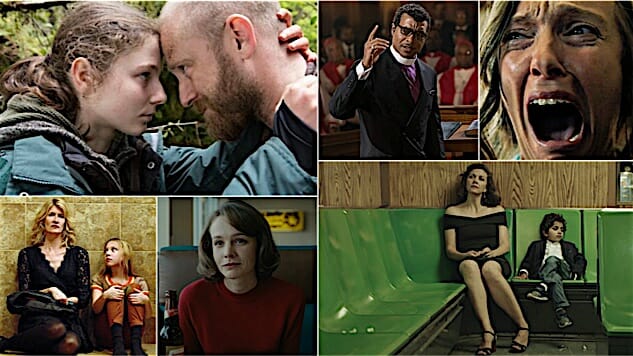The 10 Best Performances of the 2018 Sundance Film Festival

The challenge of covering a film festival as vast as Sundance is that no one human being can see everything. So consider this collection of acting highlights merely a sampling of everything that Park City festival had to offer—and a sneak preview of some movies you should definitely put on your radar.
10. Mia Wasikowska, Damsel

Part of Mia Wasikowska’s appeal has been her allusiveness—that sense that you can’t always get a bead on her characters. In the Zellner brothers’ loopy, oddly moving Western Damsel, she gets to be a little more demonstrative as Penelope, a no-nonsense woman in the Old West who doesn’t need a man to rescue her—even if he’s played by Robert Pattinson. To explain the intricacies of Penelope’s character would be to spoil Damsel’s surprises, so let’s just say that Wasikowska punches holes in genre stereotypes, upsetting the whole concept of a “damsel in distress.” She’s never been funnier than she is in Damsel, brandishing a deadpan sense of humor as skillfully and as lethally as a shotgun.
9. Thomasin Harcourt McKenzie, Leave No Trace

The coming-of-age drama comes in many forms. In Leave No Trace, it’s seen through the eyes of Tom, a teenager who’s lived a life cut off from civilization. She and her father Will (a very good Ben Foster) make do off the grid, camping in the Oregon woods far from society. The reasons why Will has chosen that existence for his daughter are complicated, but the consequences of those decisions are felt deeply by Tom, and relative newcomer Thomasin Harcourt McKenzie illustrates the love and sorrow that this young woman feels as she begins to understand that her life is so different from those her age. Winter’s Bone filmmaker Debra Granik has an eye for outsiders, and McKenzie beautifully charts Tom’s journey from dutiful daughter to a self-actualized individual.
8. John Cho, Search

Director Aneesh Chaganty shaped his feature debut around a clever premise: A worried widowed father (John Cho) has to track down his missing teenage daughter by using electronic devices and social media, and the entire movie is seen through those portals. But for Search to work, it needs an actor who can easily elicit sympathy. A year after appearing at Sundance in the under-seen, touching Columbus, Cho returned with a very different kind of performance—but one that’s no less affecting. We only see Cho through FaceTime and other screens, so there’s an element of distancing that occurs in Search. But Cho erases that distance, making us feel this father’s growing dread as the accumulation of clues suggests that something terrible has happened to his baby girl.
7. Kathryn Hahn, Private Life

With an assist by her flawless scene partner Paul Giamatti, Kathryn Hahn gives perhaps her best big-screen performance in Private Life, in which they play a frustrated married couple struggling to have a baby. Hahn’s Rachel is a struggling novelist but, more profoundly, she’s at a crossroads in her life as a fortysomething woman who fears her relationship has flatlined and that she’s a failure because she hasn’t had a child. These are common anxieties, but writer-director Tamara Jenkins shows a remarkable specificity for her characters’ predicament, illustrating how frustration in one aspect of your life bleeds into every other area. Hahn’s biting comedic tone is well-served in Private Life—this film is often caustically funny—but she’s just as talented in showing the emotional wear and tear that’s going on inside Rachel as she tries to conceive. It’s very hard to make normal life feel profound. Private Life and Kathryn Hahn do it effortlessly.
-

-

-

-

-

-

-

-

-

-

-

-

-

-

-

-

-

-

-

-

-

-

-

-

-

-

-

-

-

-

-

-

-

-

-

-

-

-

-

-














































